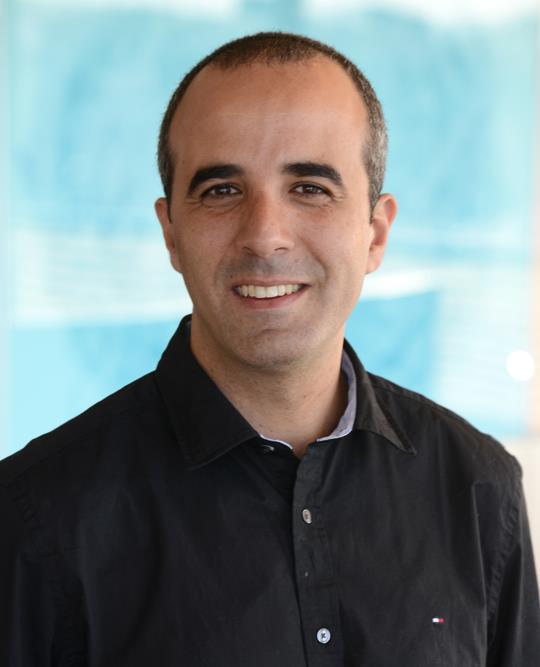
Transition of Care: Our Patients Are Growing Up
Activity description
This activity consists of a recorded presentation from the "31st Annual National Clinical Conference" held in Bloomington, Minn., Oct. 17-19, 2022.
Structured health care transition (HCT) planning that supports adolescents with complex medical conditions as they move from pediatric, parent-supervised health care to independent, adult health care is considered essential. Lack of HCT implementation has a strong association with poor health outcomes and higher morbidity and mortality. This activity provides a thorough understanding of the recommended HCT components, considerations and goals that should be constant across HCT planning. It discusses the importance of coordinating the efforts of the health care team, adolescent and family to ensure continuity of care, positive health outcomes, and optimal quality of life.
Provided by
This activity is provided by Optum Health Education.
Commercial support
There was no commercial support for this activity.
Required hardware/software
Please ensure you are using the web-browser Chrome and disable any pop-up blocking software. Click here for information on how to enable pop-ups.
Target Audience
This activity is designed to meet the educational needs of case managers, nurses, pharmacists, pharmacy technicians, physicians, psychologists, social workers, dietitians, and other health care professionals who are interested in learning about health care transition planning that supports adolescents with complex medical conditions as they move from pediatric, parent-supervised health care to independent, adult health care.
Learning Objectives
At the end of this educational activity, participants should be able to:
- Define the goals of HCT and how this process positively impacts health care and outcomes for the pediatric population.
- Identify the clinical processes by which HCT is optimally achieved, integrating relevant health care teams and optimizing care plans for individuals with complicated health issues.
- Describe the socioeconomic, psychosocial, and neurocognitive factors that should be considered when determining appropriate HCT plans.
- Discuss current key principles and guidelines followed by HCT programs centered around chronic diseases.
Faculty
 Hesham Eissa, MD
Hesham Eissa, MD
Assistant Professor of Pediatrics
University of Colorado, School of Medicine
Blood and Marrow Transplant and Cellular Therapeutics
Center for Cancer and Blood Disorders
Children's Hospital Colorado
Aurora, CO
Hesham Eissa, MD, graduated from the University of Cairo Faculty of Medicine in 2001. He is assistant professor of pediatrics at Children’s Hospital Colorado and specializes in internal medicine/pediatrics, hematology/oncology and pediatric hematology/oncology. His clinical interests are in stem-cell transplantation and cellular therapy. More specifically, he is interested in stem-cell transplantation for non-malignant conditions affecting the blood and immune systems, as well as late effects of stem-cell transplantation.
Planning Committee
Elizabeth Albert, MD
Clinical Activity Manager
Optum Health Education
Eden Prairie, MN
Rebecca Gleason, RN, CCM
Activity Manager
Optum Health Education
Eden Prairie, MN
Jennifer Malin, MD, PhD
Senior Vice President and Chief Medical Officer
Optum Health Solutions
Eden Prairie, MN
Tina Rydland, PharmD
President
ArdentCare Solutions
Denver, CO
Disclosures of relevant financial relationships
In accordance with the Accreditation Council for Continuing Medical Education's (ACCME) Standards for Integrity and Independence in Accredited Continuing Education, OptumHealth Education (OHE) requires all those in control of educational content to disclose their financial relationships with ineligible companies within the prior 24 months. Ineligible companies are defined by the ACCME as companies whose primary business is producing, marketing, selling, re-selling, or distributing health care products used by or on patients. Individuals must disclose all financial relationships, regardless of the amount, with ineligible companies and regardless of their view of the relevance of the relationship to the education. OHE ensures that the content is independent of commercial bias.
The activity faculty and planners have no financial relationships to disclose.
Method for calculating CE credit
CE credit was calculated by the complexity of content.
Accreditation Statement In support of improving patient care, Optum Health Education is jointly accredited by the Accreditation Council for Continuing Medical Education (ACCME), the Accreditation Council for Pharmacy Education (ACPE), and the American Nurses Credentialing Center (ANCC) to provide continuing education for the health care team.
In support of improving patient care, Optum Health Education is jointly accredited by the Accreditation Council for Continuing Medical Education (ACCME), the Accreditation Council for Pharmacy Education (ACPE), and the American Nurses Credentialing Center (ANCC) to provide continuing education for the health care team.
Credit designation statements This activity was planned by and for the health care team, and learners will receive 0.75 Interprofessional Continuing Education (IPCE) credits for learning and change.
This activity was planned by and for the health care team, and learners will receive 0.75 Interprofessional Continuing Education (IPCE) credits for learning and change.
Nurses
The participant will be awarded up to 0.75 contact hour(s) of credit for attendance and completion of supplemental materials.
Nurse practitioners
The American Academy of Nurse Practitioners Certification Program (AANPCP) accepts credit from organizations accredited by the ACCME and ANCC.
Pharmacists/Pharmacy technicians
This activity is approved for 0.75 contact hour(s) ([0.075] CEU) in states that recognize ACPE.
Attending the full program will earn 0.75 contact hour(s).
Unique Activity Number(s): JA0007123-0000-23-017-H01-P/T
Physicians
Optum Health Education designates this enduring activity for a maximum of 0.75 AMA PRA Category 1 Credit(s)™. Physicians should claim only the credit commensurate with the extent of their participation in the activity.
PAs
The American Academy of Physician Assistants (AAPA) accepts credit from organizations accredited by the ACCME.
Case managers
The Commission for Case Manager Certification has approved this program for a maximum of 0.75 clock hour(s) for Certified Case Managers (CCM).
Dietitians
Completion of this RD/DTR profession-specific or IPCE activity awards CPEUs (One IPCE credit=One CPEU).
If the ac tivity is dietetics-related but not targeted to RDs or DTRs, CPEUs may be claimed which are commensurate with participation in contact hours (One 60 minute hour=1 CPEU).
tivity is dietetics-related but not targeted to RDs or DTRs, CPEUs may be claimed which are commensurate with participation in contact hours (One 60 minute hour=1 CPEU).
RD's and DTRs are to select activity type 102 in their Activity Log. Performance indicator selection is at the learner's discretion.
Psychologists and social workers
Participants must have attended the entire Web-based activity and completed an evaluation to receive a certificate. Partial credit is not available.
Psychologists
Optum Health Education is approved by the American Psychological Association (APA) to offer continuing education for psychologists. OptumHealth Education maintains responsibility for this program. 0.75 CE hour.
Social Workers
| As a Jointly Accredited Organization, Optum Health Education is approved to offer social work continuing education by the Association of Social Work Boards (ASWB) Approved Continuing Education (ACE) program. Organizations, not individual courses, are approved under this program. State and provincial regulatory boards have the final authority to determine whether an individual course may be accepted for continuing education credit. Optum Health Education maintains responsibility for this course. Social workers completing this course receive 0.75 enduring continuing education credit. |
Attendance
A certificate of attendance will be provided to learners upon completion of activity requirements, enabling participants to register with licensing boards or associations that have not been preapproved for credits. To apply for credit types not listed above, participants should use the procedure established by the specific organization with which they wish to obtain credit.
Available Credit
- 0.75 ACPE - Pharmacists
- 0.75 ACPE - Pharmacy Technicians
- 0.75 AMA - Physicians
- 0.75 ANCC - Nurses
- 0.75 APA - Psychologists
- 0.75 Attendance - General Attendance
- 0.75 CCMC - General - Case Managers
- 0.75 CDR - Dietitians
Prior to beginning this activity, please ensure you are using the web-browser Chrome and disable any pop-up blocking software. Click here for information on how to enable pop-ups.
You must be logged into your account to participate in this activity. Get started by clicking the down arrow and then "Start" under “Webcast”; then follow the prompts at the bottom of the screen. At the end of the activity, you will be able to view, save or print your certificate of participation. A complete listing of all of your activities can be found under “My Account,” “My Activities.”

 Facebook
Facebook Twitter
Twitter LinkedIn
LinkedIn Forward
Forward